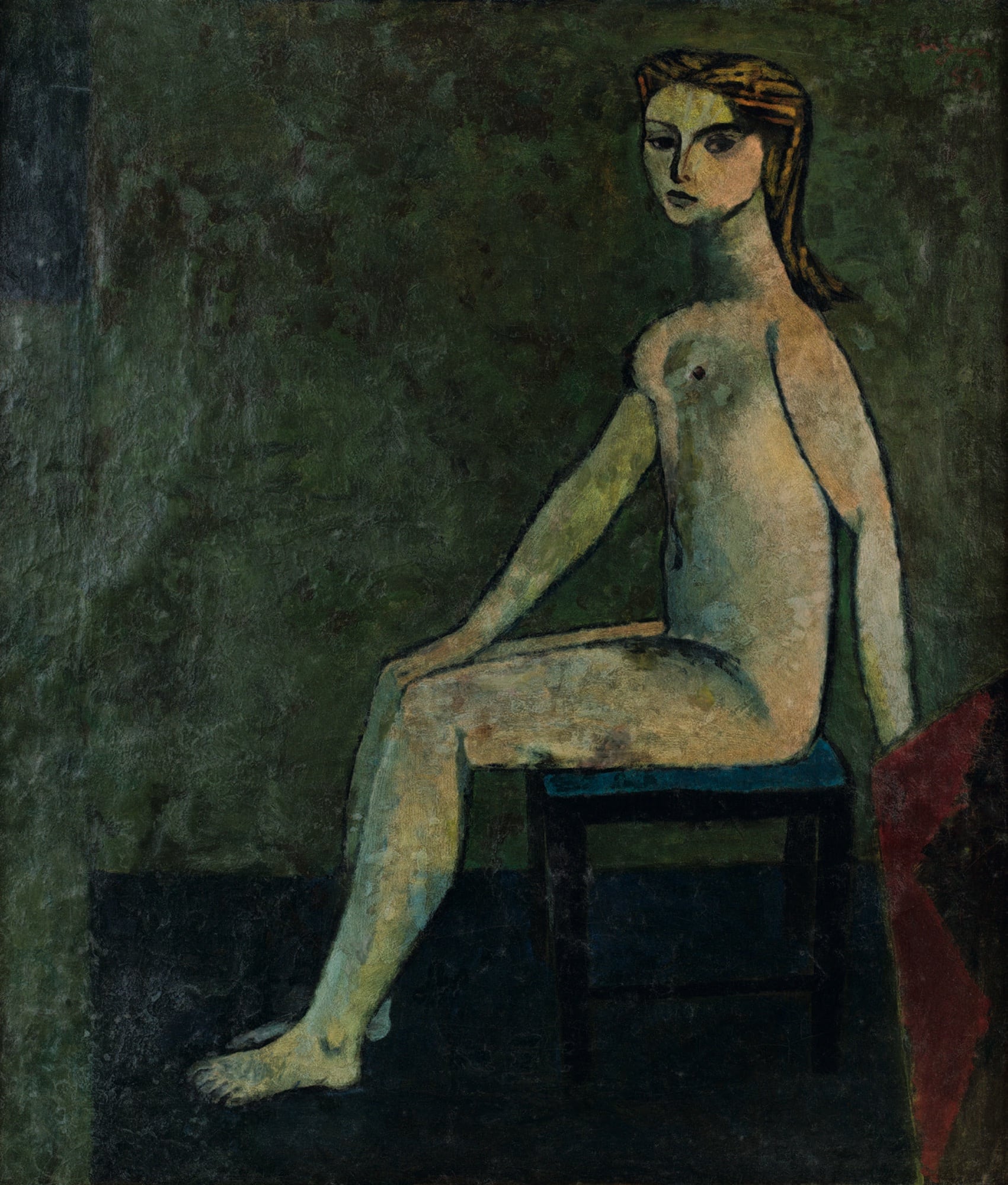Todo el tiempo, 2010
, 5 min 15 s, colour, sound (music: Glez)
Courtesy of NYSUfilms
In Todo el tiempo, Jesús Hernández, with musical backing by Glez (alias Amaro Ferreiro), created a disturbing ‘last supper’ plagued with pictorialist references to and mentions of the tenebrist aesthetic and the still lifes of the Baroque tradition. With painstaking staging and a virtuoso use of the stop- motion technique, he presents us with a surprising gallery of characters who are disturbing one moment and hilarious the next. Black humour and audiovisual experimentation at the service of a story suspended in time, in which the tension keeps growing until we reach the unexpected end.

A series of small and rather similar nudes Bedri Rahmi Eyüboğlu and Eren Eyüboğlu produced in the early 1930s almost resemble a ‘visual conversation’ that focus on a pictorial search. It is also possible to find the visual reflections of this earlier search in the synthesis Bedri Rahmi Eyüboğlu reached with his stylistic abstractions in the 1950s.
Tuesday - Saturday 10:00 - 19:00
Friday 10:00 - 22:00
Sunday 12:00 - 18:00
The museum is closed on Mondays.
On Wednesdays, the students can
visit the museum free of admission.
Full ticket: 300 TL
Discounted: 150 TL
Groups: 200 TL (minimum 10 people)